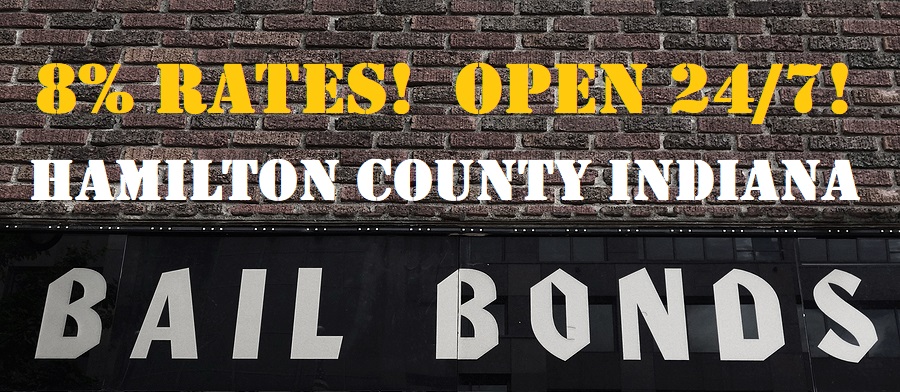For fast and secure bail bond service in Hamilton County, Indiana, choose none other than the professional bail bond agents like James Woods at Woods Bail Bonds! He and our company’s trusted team of licensed and bonded Indianapolis bail bondsmen have more than 35 years of experience in the indemnity industry, and can help you get a loved one out of jail in Noblesville, IN faster than any other bail bondsman on the block!
Continue below to learn why so many Hoosiers trusted James Woods and Woods Bail Bonds for fast, friendly, and professional assistance to get out of the Hamilton County Jail in Noblesville, Indiana.

Hamilton County Bail Bond Services You Can Trust
Here at Woods Bail Bonds, we offer standard bail bond services, as well as a wide range of additional bail bonds, including probation violation bail bonds, prearranged bail bonds for arrest warrant surrenders, parole bonds, state bonds, federal bonds, immigration bonds, cash bonds, property bonds, surety bonds, and much more. To get the best Hamilton County IN bail bond services in Noblesville, simply contact Woods Bail Bonds at 317-770-7400, anytime. You can talk to a licensed bail agent about obtaining a bail bond in Hamilton County, free of charge!
Woods Bail Bonds operates 24 hours a day, 7 days a week, and 365 days a year. That’s right; we are even open on national holidays, rain, snow, or shine!
Best Bail Bond Prices in Central Indiana, Guaranteed!
Generally, the cost of a bail bond is set at 10% to 15% of the bond premium. But right now, the state is allowing bail agents to charge even lower at their own discretion! So, take advantage of our current 8% bail bonds rate, which is much lower than the standard 10% to 15% rate the Indiana Department of Insurance has historically allowed! Request a free estimate or jail information, anytime. We are ALWAYS standing by, ready to answer your questions about bailing a person out of jail, or turning yourself in for an outstanding arrest warrant, and more. We also provide free estimates, jail information, inmate searches, 24 hour services, and much more.
James Woods – Owner and Operator of Woods Bail Bonds
James Woods, Owner and president of Woods Bail Bonds, is in charge of general operations, bond approvals, transfer bonds, advertising, and director of operations for all agents. All court proceedings on bond forfeitures and any other court related matters. He has over 30 years’ experience in the bail bond business, his persistence and compassion about bail bonding business has enabled him to help handle, court proceedings, complaints, advising families, analyzing problems and the day to day challenges of the bail bond business. Through the years, his knowledge of concepts and principles of bail bonding has changed, but his passion for helping people in need of bail assistance never will.
Need to get out of Hamilton County Jail in Noblesville, Indiana? Contact Woods Bail Bonds at 317-770-7400 for information about Hamilton County Indiana bail bonds.
You Might Want to Read:
How Much Does A Bond Cost In Hamilton County?
How to Find a Reliable Hamilton County Indiana Bail Bondsman in Indiana
Hamilton County Bail Bond Links You Will Need to Manage Your Arrest








